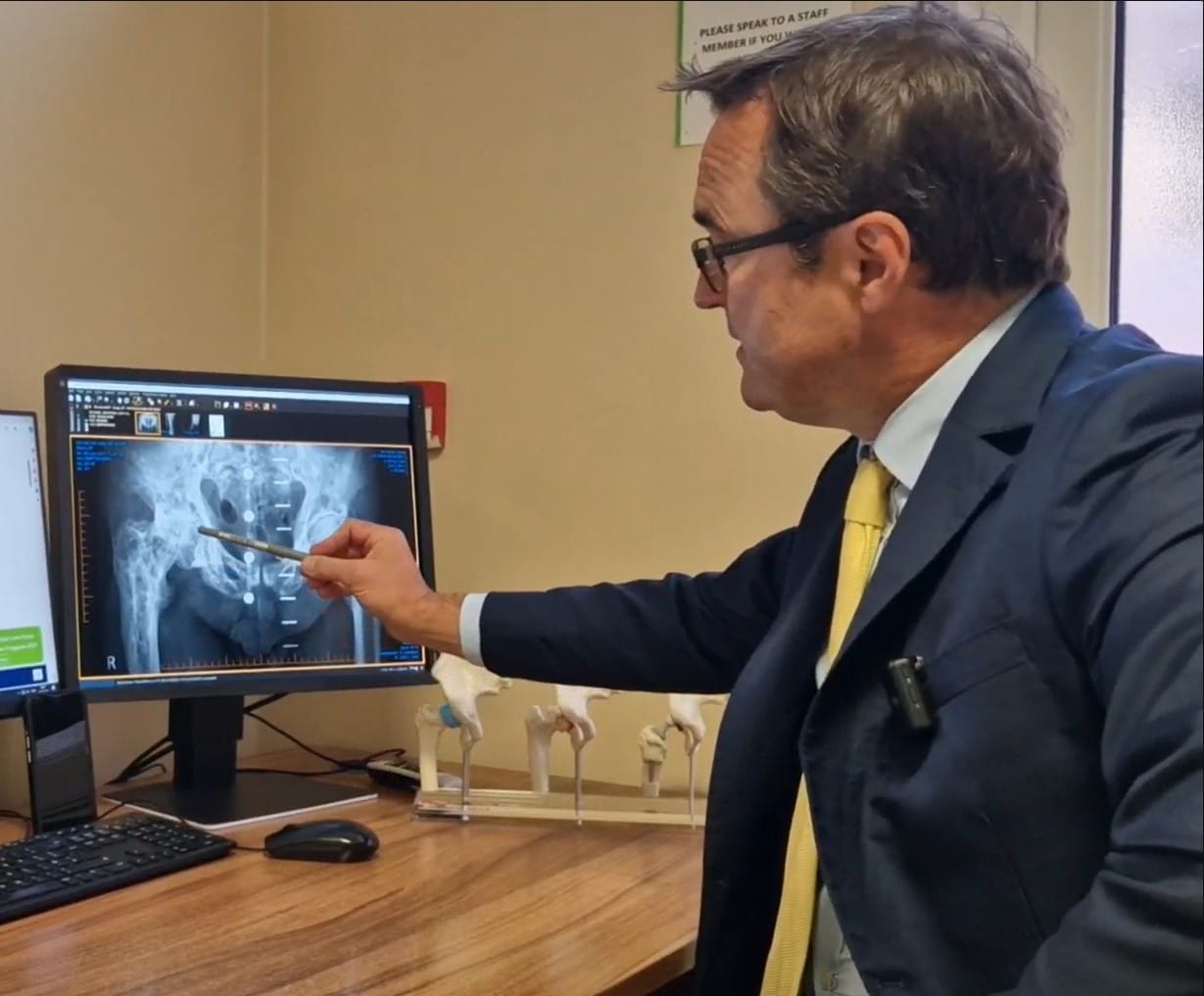‘My shoulder has become very stiff and painful and hurts with any sudden movements and at night time. I saw my GP who thinks it might be a frozen shoulder but I have also heard of a thing called ‘impingement’. What is the difference?’
Problems like these of the shoulder are very common and can occur in as much as 14% of the population. Differentiating between the two problems is also very difficult because there has not been an agreed set of symptoms that a person with either problem might present with and there is a lot of overlap between the two.
Typically a frozen shoulder has a restriction to turning the forearm away from the body when somebody else is trying to move it for you. This is called a capsular pattern of restriction. Other conditions such as arthritis may also cause this restriction which can usually be ruled out by having an X-ray done. A frozen shoulder is also usually quite painful, particularly with any sudden movements and in the early stages, also at night time. Often no specific cause for the start of a frozen shoulder can be identified but they are more common in people who have diabetes, are over 50 years old and are female. It may follow after a small trauma or may just develop on its own. The pain is also usually deep inside the shoulder and also has a lot of stiffness.
An impingement of the shoulder can come about when the muscles and other structures in the space between the top of your arm bone (the humerus) and the underneath of the end of the collar bone get injured or become swollen. This can lead to some problems with a painful restriction of range of movement and what is often called an ‘arc of pain’. This is where it only hurts in a certain part of the movement as you lift your arm up. You may also have trouble lifting things or reaching out. There isn’t usually any pain or stiffness if somebody else is moving your arm for you. Sometimes an ultrasound scan can be useful in helping to diagnose this problem.
Confirming a diagnosis between these two problems is made more difficult as they often occur at the same time and there is a lot of overlap between the two.
Getting your GP to refer you to a Physiotherapist or Extended Scope Practitioner will help with the diagnosis and also get you started onto the right path for helping to improve the problem.
What makes Horder Healthcare unique
Horder Healthcare is committed to providing the very best quality of care for our patients and customers. We are continuously working on improving and reducing risks and this is reflected in our consistently high CQC results, patient satisfaction questionnaires and minimal levels of infection.
We are a charity
We reinvest our profit to benefit more people and help us achieve our aim of advancing health.






